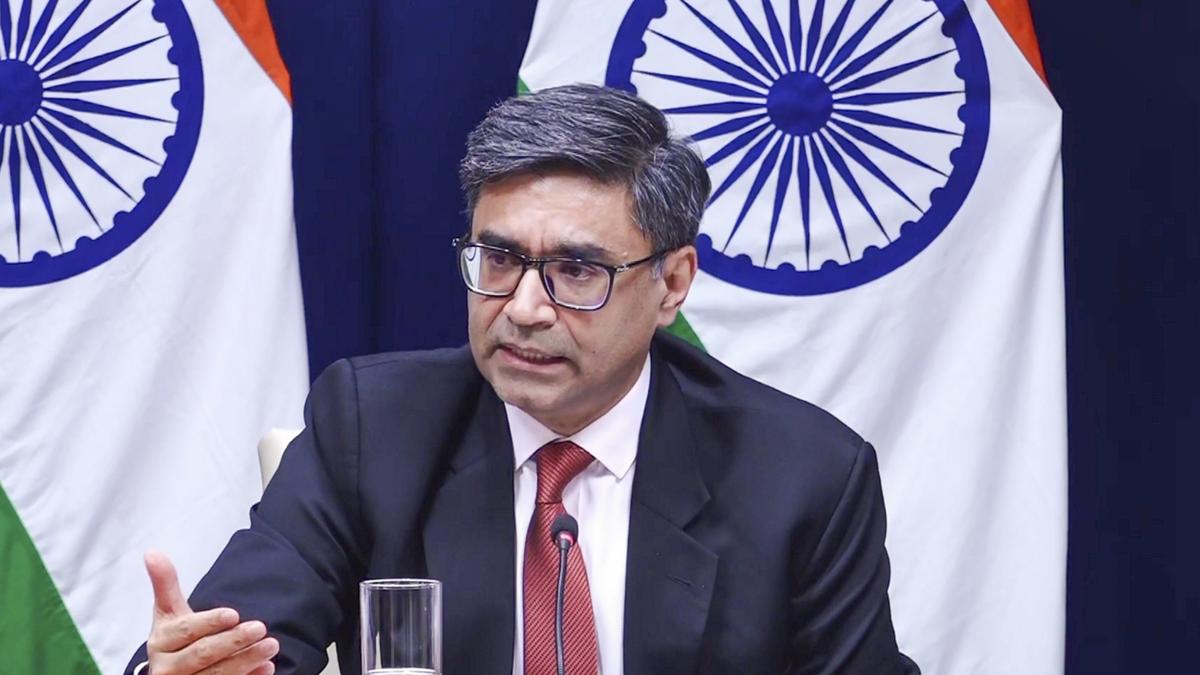Today’s Current Affairs brings us the intriguing story of the India VIX Index, a measure of market volatility that has been on a continuous rally, raising questions about its implications for the upcoming Lok Sabha elections. Market experts are divided on whether the rising India VIX Index signals a potential shift in the political landscape or is driven by external factors like geopolitical tensions and rising US Treasury yields. As the countdown to the election results on June 4th begins, the increasing volatility in the market serves as a reminder of the complexity of political and economic dynamics at play. Stay tuned for more updates on this developing story. Today’s Current Affairs are buzzing with discussions on the upcoming Lok Sabha elections and their potential impact on the Indian markets. With the BJP expected to secure between 280-300 seats, the rising India VIX Index is a key indicator to watch. Analysts warn of potential market volatility and stress the importance of consulting experts before making investment decisions. Stay informed and stay ahead in today’s dynamic financial landscape.
1. What does the India VIX Index signal?
A. BJP’s victory in the Lok Sabha elections
B. Rising tide against BJP’s victory in the Lok Sabha elections
C. Geopolitical tension in the Middle East
D. Declining US Treasury yield
Answer: B. Rising tide against BJP’s victory in the Lok Sabha elections 1. How many seats does the BJP expect to win in the upcoming Lok Sabha election?
A. 250-270
B. 280-300
C. 310-330
D. 350-370
Answer: B. 280-300
2. What is the potential impact on Indian equities if the BJP wins less than 290 seats?
A. Positive
B. Negative
C. Neutral
D. Uncertain
Answer: B. Negative
3. According to the expert from Pace 360, what is the current behavior of the VIX similar to?
A. Pre-announcement of the 2019 Lok Sabha election results
B. Post-announcement of the 2019 Lok Sabha election results
C. Midway through the 2019 Lok Sabha election campaign
D. Before the 2014 Lok Sabha election results
Answer: A. Pre-announcement of the 2019 Lok Sabha election results
4. What is the recommended action for investors based on the analysis provided?
A. Hold onto current investments
B. Consult with certified experts before making any investment decisions
C. Sell all Indian stocks immediately
D. Invest heavily in the Indian markets
Answer: B. Consult with certified experts before making any investment decisions
1. What is the India VIX Index and why is it rising?
– The India VIX Index, also known as the Indian Volatility Index, is a measure of the market’s expectation of volatility over the near term. It has been rising due to factors such as geopolitical tension in the Middle East, rising US Treasury yield, and uncertainty over the number of seats the ruling coalition led by the BJP would win in the upcoming Lok Sabha elections.
2. What is the historical perspective on the India VIX Index during election cycles?
– According to Rajesh Sinha, Senior Research Analyst at Bonanza Portfolio, the India VIX Index has surged during previous Lok Sabha elections, reaching a high of 39.30 in 2014 and nearly touching the 30 mark in 2019. Sinha suggests that the current rise in the India VIX Index should not be interpreted as a tide turning against the NDA alliance’s clear majority.
3. What does the rising India VIX Index signal for the Indian stock market?
– Manish Chowdhury, Head of Research at StoxBox, believes that the rising VIX indicates higher volatility in the future. Markets are factoring in the possibility of the ruling government winning fewer seats than initially expected in the upcoming Lok Sabha elections. This could lead to strong selling post-election results if the BJP’s seats fall below 300. The BJP is expected to win somewhere between 280-300 seats on a standalone basis in the Lok Sabha elections. Any number below 290 seats will be considered negative for Indian equities as it would indicate a slowdown in reforms and more populism. On the other hand, any number above 300 seats will be considered positive for the Indian markets.
The rising India VIX Index is connected to the possible Lok Sabha election results as it reflects the volatility and nervousness in the market leading up to the elections. If the VIX continues to rise, it could signal a rising tide against BJP’s win in the Lok Sabha Election 2024. The behavior of the VIX is similar to the period before the 2019 election results when it rose significantly.
The current market conditions suggest that Indian stocks are overvalued, and the potential downside on a bad election outcome will be greater than the potential upside on a positive outcome. Investors are advised to consult with certified experts before making any investment decisions, considering the rapidly changing market conditions and individual circumstances.
Today's Current Affairs revolve around the rising India VIX Index and its potential impact on the stock market ahead of the Lok Sabha elections. The India VIX, a measure of market volatility, surged to an intraday high of 20.58, marking a 65 percent increase in one month. While some speculate that this rise could signal doubts about the BJP's victory, experts suggest that factors like geopolitical tensions and rising US Treasury yields are also contributing to the spike. Analysts warn that if the BJP's seats fall below 300, it could lead to significant market sell-offs post-election results on 4th June 2024. However, historical data indicates that high VIX levels during election cycles do not always correlate with a shift in power. This complex situation underscores the importance of thorough analysis and understanding multiple factors influencing market trends. Today's Current Affairs: With the Lok Sabha elections approaching, the Indian markets are bracing for heightened volatility. Analysts predict that the ruling coalition may lose momentum, leading to a potential outcome of the BJP securing between 280-300 seats. Any number below 290 could be negative for equities, while anything above 300 would be positive. The rising India VIX Index is reminiscent of the pre-election period in 2019, indicating uncertainty. Market experts caution that Indian stocks are currently overvalued, and a poor election outcome could result in significant downside risks. Investors are advised to seek guidance from certified experts before making any investment decisions.










